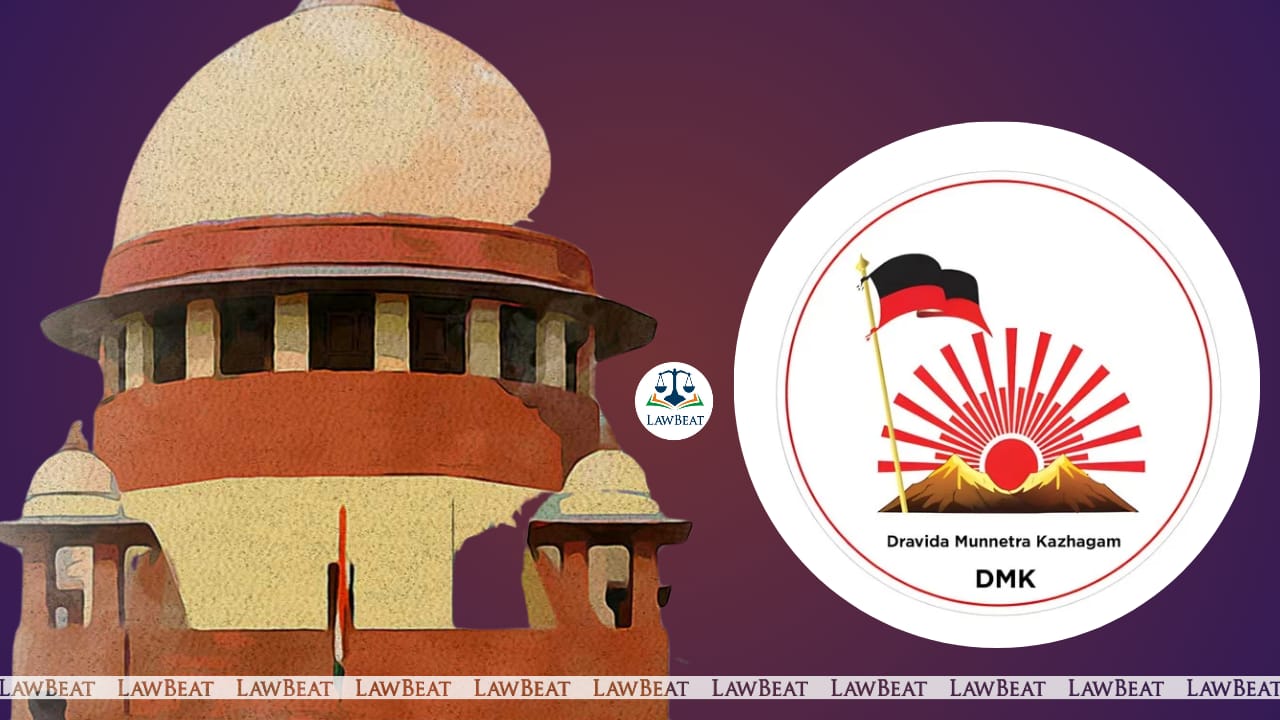Places of Worship Act intended to maintain communal harmony: DMK submits before Supreme Court

Issues raised in the writ petition have pan India ramification on the issue of places of worship concerning the minority religions in the country, DMK has submitted
Dravida Munnetra Kazhagam (DMK), the ruling political party currently in State of Tamil Nadu, has filed an application before Supreme Court of India seeking to intervene as a respondent in the writ petition filed challenging the Places of Worship Act, opposing the same.
As per DMK, the Writ Petition filed by Advocate Ashwini Upadhyay seeks directions which would undermine the Right to Freedom of Religion and Right to Worship enshrined under the Articles 25, 26, 27 and 28 of the Constitution of India.
"The Places of Worship (Special Provisions) Act, 1991 was enacted with the intention to close any controversy with respect to place of worship that existed on 15th August, 1947....., the Act also intended to maintain communal harmony and peace between the citizens of India practicing different religions", the intervention application submits.
Today, in the batch of pleas challenging the constitutional validity of the Places of Worship (Special Provisions) Act, 1991 (PoW Act) the Supreme Court ordered that no trial court across India shall register any fresh suit filed by a community or its member claiming ownership of any existing religious place belonging to a different community.
Top Court has further ordered that no orders of survey or any effective orders shall be passed in the suits pertaining to religious places claims pending before the local courts of the high courts until it concludes the matter before it.
A special bench of Chief Justice of India Sanjiv Khanna, Justices Sanjay Kumar, and KV Viswanathan could not hear the matter today as no counter was on record on behalf of the Union government. Accordingly, court has allowed the Union 4 weeks' time to file the counter. It also ordered the respondents to file their replies by then as well.
The special bench is seized with the batch of petitions which include the pleas of Dr. Subramanian Swamy, Advocate J Sai Deepak, Advocate Ashwini Kumar Upadhayay and Advocate Vishnu Shankar Jain challenging the legislation.
On the opposite side, Jamiat Ulama-i-Hind, led by President Maulana Arshad Madani has also filed a petition for 'effective and proper enforcement' of the provisions of the Act.
Moreover, the Committee of Management Anjuman Intezamia Masjid, which oversees the Gyanvapi in Varanasi, has also approached the Supreme Court seeking to intervene in the batch of pleas. Its main contention is that the pleas against the PoW Act have been filed seeking to question its validity with rhetoric and they are rooted in communal claims. Therefore, it argues that such petitions cannot be entertained by the Supreme Court.
The All India Muslim Personal Law Board is also an opposing party in the batch of petitions.
In September 2022, a bench of then CJI UU Lalit, retd. Justice S Ravindra Bhat and Justice PS Narasimha had sought Centre’s response in the pleas.
Case Title: Ashwini Upadhyay vs. Union of India and connected matters
